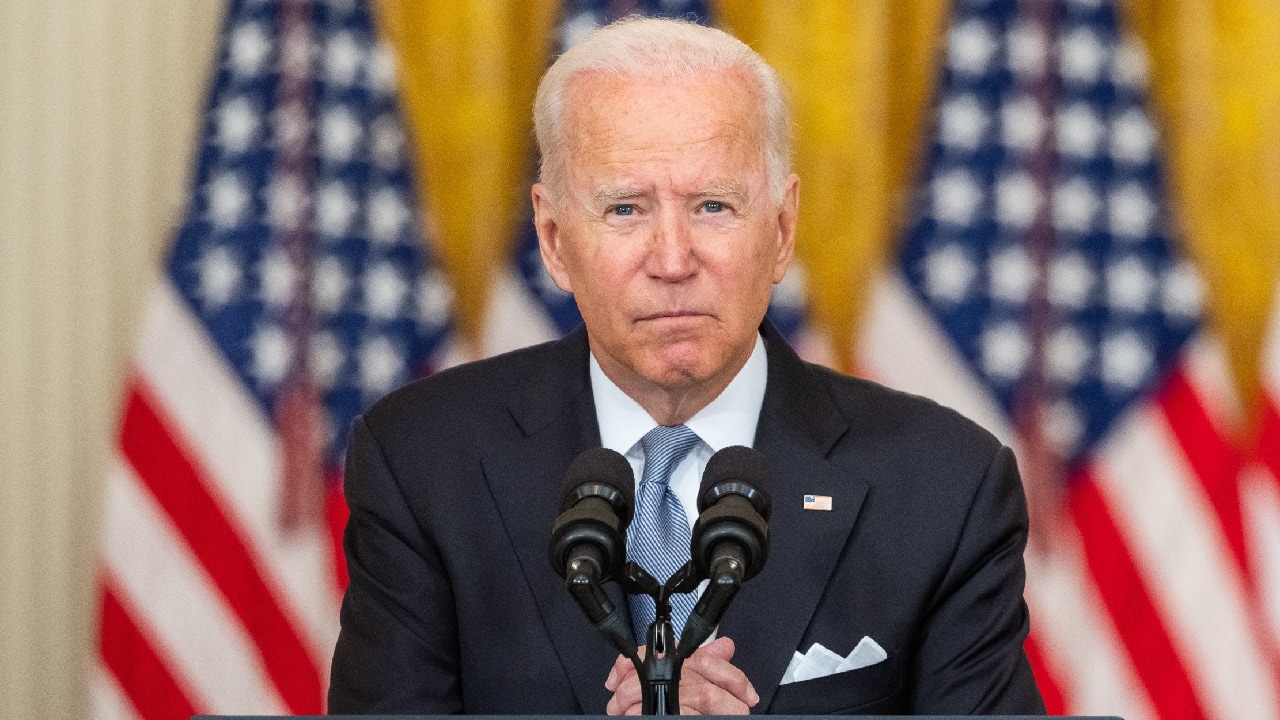President Joe Biden will almost surely have a Sister Souljah moment on energy production this year by necessity. It won’t make the Squad happy. Republicans will say he didn’t go far enough—and he probably won’t. His climate czar John Kerry might ironically call the president a flip-flopper.
But when the national average for gas prices surpasses $5 per gallon and European allies are feeling the pain more, it will become clear how much of a national security issue that energy is.
Even after the United States finally stopped importing Russian oil, energy remains President Vladimir Putin’s only advantage over the world.
German Chancellor Olaf Scholz didn’t wilt amid much of Putin’s aggression. He led in some instances regarding strong economic sanctions. But he has his country to consider in the near term, stating, “Europe has deliberately exempted energy supplies from Russia from sanctions. Supplying Europe with energy for heat generation, mobility, electricity supply, and industry cannot be secured in any other way at the moment.”
Russia is essentially little more than a gas station, as it’s not known for producing other goods of value to the world. Damage their oil economy, and the economy collapses quickly.
If only there was another country that could export the oil and gas to make our allies substantially less dependent on Russia for fuel.
In 2019, before the pandemic slowed down everything, the United States was a net energy exporter.
When Biden came into office in 2021, he halted production on federal lands, canceled the Keystone XL pipeline, and stopped drilling on Alaska’s Arctic National Wildlife Refuge. The Biden administration rejoined the Paris Agreement and has just recently proposed new climate standards that would regulate conventional trucks. It also declined to appeal a federal court decision that vacated the only leases it sold last year on federal lands or waters.
Biden and Democrats haven’t ignored the potential election-year consequences. The administration is seeking to work with the Nicolas Maduro regime to access oil in Venezuela, even though Maduro is an illegitimate leader. He’s also turning to Saudi Arabia and the United Arab Emirates to increase production.
This would almost seem laughable if not so outrageous when the U.S. could return to form from.
The existing excuse is that oil companies are not using more than 9,000 approved permits. Moreover, Keystone, ANWR, and other projects aren’t producing oil now.
On that 9,000 permits contention, the initial lease approval still involves lengthy federal reviews under the National Environmental Policy Act and contending with various litigation from environmental groups. According to The Wall Street Journal, the permit is only the first step. It takes about 140 days for the federal government to approve a drilling permit and additional federal rules have made it tough for companies to get permits to contract rigs for operating on federal lands.
This could be expedited. Moreover, like other futures and commodities, anticipated supply impacts the prices of a product. Lower anticipated production causes prices to increase. Further, is there certainty that Venezuela and Arab states would produce more fuel more quickly than American companies? And wouldn’t it be dirtier fuel—with the added emissions of transporting?
Moreover, that Keystone XL pipeline from Canada to Nebraska – in the long term – would carry about 830,000 barrels of oil per day into the United States from an ally, easily supplanting the 800,000 barrels per day the United States imported from Russia during 2021.
Notably, the administration also says this crisis is the reason to double down on an alternative energy future –to avoid reliance on hostile regimes for energy. Fair enough. But it’s rather absurd to argue that oil production can’t happen fast enough anyway, so let’s wait around for wind, solar and electric cars. The U.S. Energy Information Administration finds no scenario where global demand for oil and natural gas would not increase through at least 2050. Americans should welcome the development of competing energy sources, but we can’t live in a fairy tale.
In the short term, the administration seems likely to cave to the Squad, as Rep. Alexandria Ocasio-Cortez said Biden missed an opportunity to commit to a fossil-free future during his State of the Union address. But if a chorus of vulnerable House Democrats in red and purple districts begin singing drill-baby-drill, Biden might have a change of heart.
A Sister Souljah moment, dubbed for 1992 Democratic presidential candidate Bill Clinton’s denunciation of a hip hop artist’s anti-white comments, was supposed to be a play for moderate voters. Since that time, it become part of the political lexicon to describe a politician standing up to a fringe element of his party that risks alienating elements of the base but appeals broadly to centrist voters.
One out would involve intense spinning from the White House. But they might have a compliant media.
Biden could take executive actions to expedite drilling on all the current leases—those 9,000 permits—and restore some of the Trump administration policies. The White House line could simply be that Biden is not authorizing anything new here, just providing some continuity and reassuring the market. He could steer clear of the emotional hot zones such as Keystone, ANWR, and the Paris agreement. This would be a start, albeit an insufficient one.
If this doesn’t work, then Biden would have to go full-fledged Sister Souljah moment. The White House could cast it as courageous presidential leadership. He would probably get approving nods from CNN and a split decision from MSNBC where Morning Joe would give the thumbs up and the primetime lineup would scold him.
Whatever the motives, and whatever level of courage this would take, sometimes the right thing to do becomes unavoidable.
Fred Lucas is chief national affairs correspondent for The Daily Signal and the author of “Abuse of Power: Inside The Three-Year Campaign to Impeach Donald Trump.”

